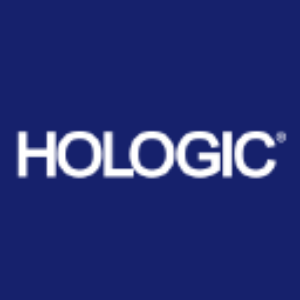New Report Reveals Alarming Decline in Women’s Cancer Testing Worldwide
Hologic, Inc. (Nasdaq: HOLX), a leading women’s health innovator, partners with Gallup to create the Index. Now in its fourth year, the Index raises new concerns about declining trends in women’s health. For the first time in the history of the Index, women’s cancer testing declined: Only
This year’s Index will be released today during an event convened by Goals House, a community focused on driving progress toward the United Nations (UN) Sustainable Development Goals (SDGs) alongside the World Economic Forum in
“Today’s data reveal a worsening trend in women’s health,” said Stephen P. MacMillan, Chairman, President and CEO of Hologic. “The shocking decline in cancer testing is a wake-up call. Business as usual is not working. Innovative strategies and collaborative efforts are needed to make sustained improvements in women’s health and well-being around the world.”
Key findings from this year’s Index:
-
Cancer Screening Among Women Declined: Only
10% of women said they underwent any type of cancer testing in the past year, reflecting a decrease of two percentage points from the first two years of the survey. -
Women Are Struggling More to Meet Basic Needs: A staggering
38% of women reported being unable to afford food at some point in the past year, marking the highest level of food insecurity in nearly two decades. And32% of women said they could not afford adequate shelter. -
More Women Are Worried and Sad: More women reported feeling worried (
42% ) and sad (30% ) compared to Year 1 of the Index. And over one third (35% ) said they felt unsafe in their communities. -
Ongoing Physical Pain and Health Issues:
34% of women reported experiencing significant pain the previous day, while26% indicated that health problems impacted their ability to engage in everyday activities. -
HIV Testing Rates for Women Are Alarmingly Low: The Index assessed women’s HIV testing for the first time and found concerning disparities: Less than
0.5% of women were tested in certain countries, primarily those in theMiddle East andNorth Africa , and no country scored above41% . Globally, the percentage is much lower. Just6% of women — regardless of whether they visited a healthcare professional or were tested for STIs — said they were tested for HIV in the past year. -
Signs of Hope — Some Countries Are Making Progress: 28 countries saw meaningful increases in their Index scores since the first year of the Index, including
Kazakhstan ,Kenya ,Poland andVenezuela .
The Index assigns a women’s health score to each country or territory based on survey responses on five dimensions of health. Overall, the world scored 53 out of 100 on the Index in Year 4, reflecting no significant change since the Index started.
The Index fills a critical gap in knowledge about the health, safety and well-being of women worldwide. Based on interviews with more than 146,000 women and men in 142 countries and territories, it represents the voices of
To see the full Index and related resources, visit WomensHealthIndex.com.
About Hologic, Inc.
Hologic, Inc. is a global leader in women’s health, dedicated to developing innovative medical technologies that effectively detect, diagnose and treat health conditions and raise the standard of care around the world. For more information on Hologic, visit www.hologic.com and connect with us on LinkedIn, Facebook, X, Instagram and YouTube.
Hologic and The Science of Sure are trademarks and/or registered trademarks of Hologic, Inc. and/or its subsidiaries in
About Gallup
Gallup delivers analytics and advice to help leaders and organizations solve their most pressing problems. Combining more than 80 years of experience with its global reach, Gallup knows more about the attitudes and behaviors of employees, customers, students and citizens than any other organization in the world.
View source version on businesswire.com: https://www.businesswire.com/news/home/20250121461870/en/
Investor Contact
Michael Watts
Corporate Vice President, Investor Relations
(+1) 858.410.8514
michael.watts@hologic.com
Media Contact
Bridget Perry
Senior Director, Corporate Communications
(+1) 508.263.8654
bridget.perry@hologic.com
Source: Hologic, Inc.







